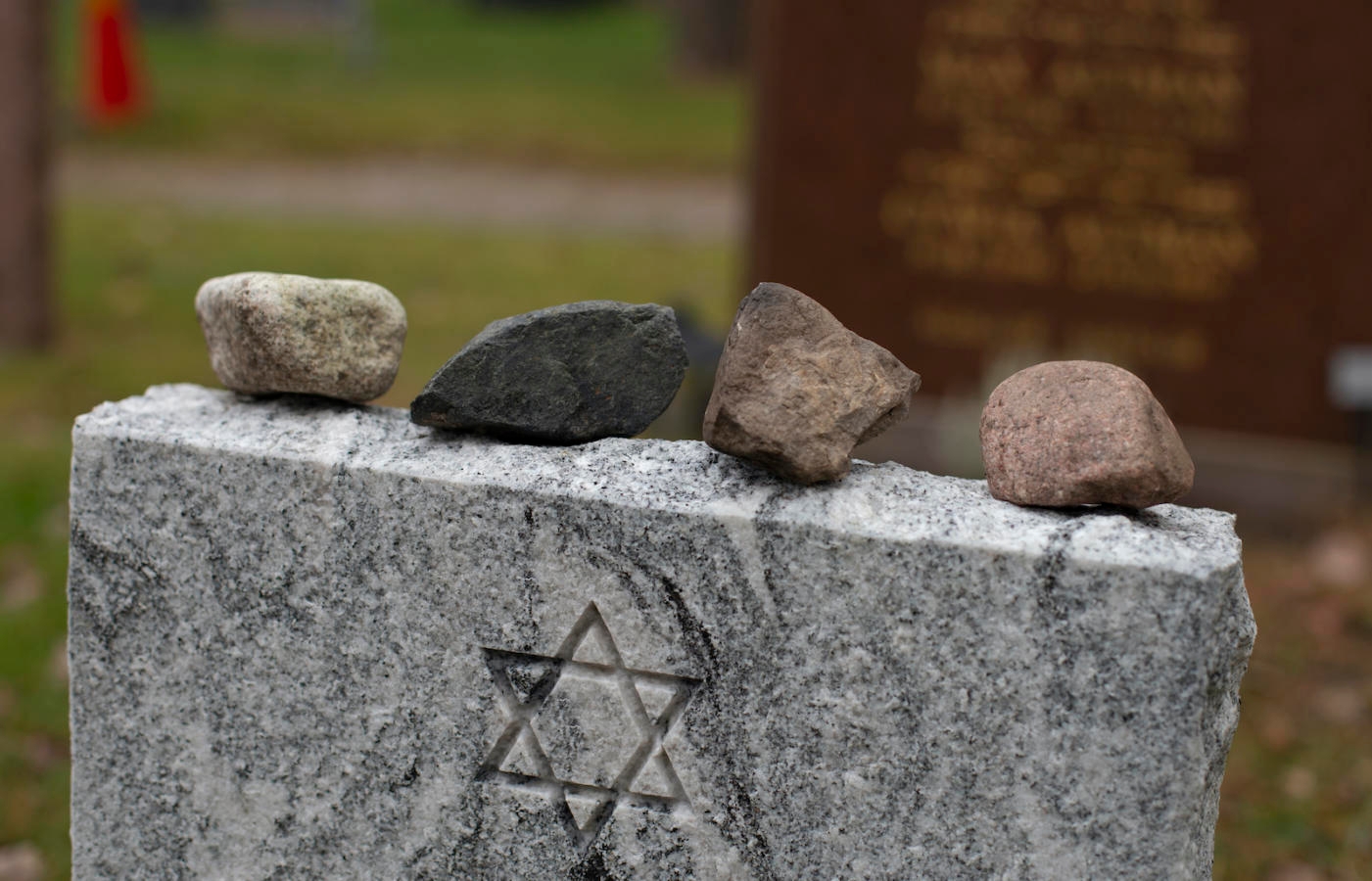El Maleh Rachamim is a Jewish prayer for the dead traditionally recited at funerals as well as during the Yizkor memorial service on Yom Kippur and the three pilgrimage festivals. The tone is set by its opening three words: “God full of compassion.” The prayer goes on to ask God to grant peace to the soul of the departed and bind it in the bonds of eternal life. When said publicly, El Maleh Rachamim is typically chanted to a haunting tune.
There are versions of El Maleh Rachamim said on behalf of an individual as well as versions said on behalf of specific groups, most commonly victims of the Holocaust and fallen Israeli soldiers. But the essential language is consistent throughout.
The version recited on behalf of an individual woman reads as follows:
אֵל מָלֵא רַחֲמִים, שׁוֹכֵן בַּמְּרוֹמִים, הַמְצֵא מְנוּחָה נְכוֹנָה עַל כַּנְפֵי הַשְּׁכִינָה, בְּמַעֲלַת קְדוֹשִׁים וּטְהוֹרִים כְּזֹהַר הָרָקִיעַ מַזְהִירִים, אֶת נִשְׁמַת (שם הנפטרת בת שם אביה) שֶׁהָלְכָה לְעוֹלָמָהּ, בַּעֲבוּר שֶׁבְּלִי נֶדֶר אֶתֵּן צְדָקָה בְּעַד הַזְכַּרַת נִשְׁמָתָהּ, בְּגַן עֵדֶן תְּהֵא מְנוּחָתָהּ, לָכֵן בַּעַל הָרַחֲמִים יַסְתִּירֶהָ בְּסֵתֶר כְּנָפָיו לְעוֹלָמִים, וְיִצְרוֹר בִּצְרוֹר הַחַיִּים אֶת נִשְׁמָתָהּ, יי הוּא נַחֲלָתָהּ, וְתָנוּחַ בְּשָׁלוֹם עַל מִשְׁכָּבָהּ. וְנֹאמַר אָמֵן
God, full of compassion, who dwells on high, grant proper rest on the wings of the divine presence, in the heights of the holy and the pure who shine like the splendor of the firmament, to the soul of [woman’s name, daughter of, parent’s name], who has gone to her eternal rest. Because of this, without making a vow, I will give charity on account of her soul’s memory, in the Garden of Eden shall be her rest. Therefore, master of compassion, shelter her in the shelter of your wings forever, and bind her soul in the bonds of life. God is her inheritance, and may she rest in peace in her place of rest. And let us say, Amen.
The imagery employed in this bit of liturgy is powerful and evocative. The idea of the souls of our loved ones continuing to be bound to God in everlasting life even after their deaths is often a source of genuine comfort to the bereaved. But as is often the case in Jewish liturgy, the language of El Maleh Rachamim suggests something even deeper.
With your help, My Jewish Learning can provide endless opportunities for learning, connection and discovery.
The phrase “shelter of your wings” is sayter k’nafav in Hebrew. The word sayter (סתר) is more commonly translated as “hidden” or “secret.” In Jewish thought, hester panim — literally, “the hidden face” — derives from a verse in Deuteronomy 31:18, in which God predicts that the Jewish people will rebel against the Torah and at that time God’s face will be hidden from them. Hester panim refers to moments of profound challenge when God’s presence is difficult to discern, or when appeals to God go unanswered, or when it seems God is not active in the unfolding of history. Hester panim is commonly invoked in connection to the Book of Esther (the name Esther itself is a play on this word), the only book of the Bible in which God’s name does not appear, and to the Holocaust, as powerful an illustration as any that in particularly dark moments it can feel as if God’s presence is eclipsed.
The next phrase of the prayer references the bonds of life — tz’ror hachayim, in Hebrew. Here too the more common association of this word is a negative one. Tzar means trouble, or more precisely “narrowness.” The seminal event in Jewish history was God’s redemption of the people of Israel from slavery in Egypt. In Hebrew, Egypt is rendered as miztrayim — literally “from the narrow place.” But in this case, narrowness has been inverted into a positive image, the close embrace of eternal life.
In moments of deep grief, it can often feel as if God’s presence is eclipsed and we find ourselves in a narrow place. Yet El Maleh Rachamim subtly recasts both of these natural feelings: God’s hiddenness becomes a place of shelter and refuge, and the narrow place becomes one of binding to an infinite life force.
Like the better-known Mourner’s Kaddish — which can be read not simply as an expression of praise but as a request that God should become great in the face of the brokenness of death — El Maleh Rachamim uses a subtlety of language to both acknowledge the constriction and emptiness brought on by loss while simultaneously praying for its remediation.



